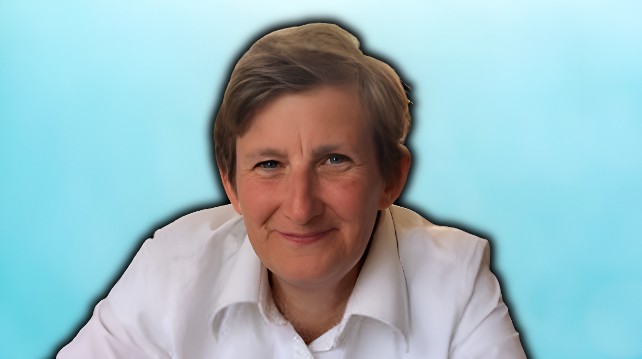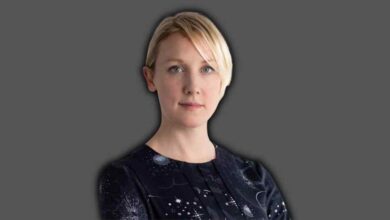Maria Exall: Championing Equality, Faith, and Trade Union Power in Modern Britain

Maria Exall stands as one of the most influential trade unionists of her generation in the United Kingdom. From her modest beginnings as a care assistant to becoming the first openly LGBT+ President of the Trades Union Congress (TUC), her journey is not only remarkable but emblematic of a deep commitment to social justice, worker empowerment, and equality. Her leadership reflects a rare combination of spiritual conviction, political intelligence, and relentless advocacy for the underrepresented.
Early Life and Career Beginnings
Born in August 1960, Maria Exall grew up in a Britain experiencing significant social and political change. Her early years were shaped by a strong sense of community and social responsibility. She started her professional journey in the public sector, working as a care assistant in the National Health Service. This formative experience instilled in her a first-hand understanding of the challenges frontline workers face and the need for collective advocacy.
In 1988, Exall transitioned to a technical role at British Telecom (BT), where she became a communications engineer. It was within this setting that she began her lifelong commitment to trade unionism, joining the Communication Workers Union (CWU). Her grassroots involvement rapidly evolved into leadership, advocating for workers’ rights, fair pay, and equality across industries.
Rising Through the Ranks of the CWU
Maria Exall’s dedication and vision saw her rise within the CWU. She became a respected figure not just for her technical competence but for her fierce defence of members’ rights. Through her work, she tackled issues ranging from contract fairness to inclusive workplace policies. Her colleagues recognised her as a unifying force who brought passion and clarity to union negotiations and campaigns.
She understood the intersectionality of workplace challenges, particularly how gender, sexuality, and class influence an individual’s professional experiences. This awareness drove her to champion equality for women, LGBTQ+ individuals, and minority workers long before such issues gained wider attention in the national discourse.
Leadership in the TUC
Maria Exall’s influence was not confined to the CWU. She joined the General Council of the Trades Union Congress in 2006 and was elected to its Executive Committee in 2014. Her strategic insight and principled stance on social justice issues made her an invaluable member of the TUC’s leadership.
In 2022, she achieved a historic milestone by becoming the first openly LGBT+ President of the TUC. Her presidency marked a significant turning point for inclusion within the union movement. Rather than focusing solely on symbolic achievements, Exall led initiatives that had practical impact, such as campaigns for stronger employment rights, inclusive union education, and safeguarding trans workers.
Advocacy for LGBT+ and Minority Rights
As Chair of the TUC LGBT+ Committee, Maria Exall has been a relentless advocate for equality. She played a pivotal role in establishing inclusive policies within trade unions and ensuring LGBT+ concerns were front and centre in union strategy. Under her guidance, the TUC launched the Trade Unions for Trans Rights Network, a national coalition aimed at uniting unions to support trans workers across all sectors.
Her efforts have not gone unnoticed. Many credit Exall with helping shift the tone of union politics to one of broader inclusion and deeper understanding of diversity. She believes that equality is not a luxury but a prerequisite for a truly democratic workplace.
A Fusion of Faith and Activism
What sets Maria Exall apart from many of her contemporaries is her open integration of faith and politics. A practising Catholic, she draws heavily on Catholic Social Teaching to guide her activism. She views the principles of dignity, solidarity, and the common good as wholly compatible with her union work.
Rather than shy away from the potential tensions between religion and progressive activism, Exall embraces them. She argues that her faith reinforces her commitment to the marginalised and underprivileged. Through public talks and writings, she has articulated a vision where spirituality and trade unionism co-exist harmoniously.
Political Engagement and Labour Party Relations
Maria Exall is also closely associated with LabourUnions, an initiative fostering closer ties between the trade union movement and the Labour Party. As its Vice Chair, she has helped steer conversations on employment rights, green jobs, and post-pandemic economic recovery. Her emphasis remains on building a society where prosperity is shared, and workers have a real voice in shaping the policies that affect their lives.
She has often warned against the dilution of workers’ rights and the creeping encroachment of insecure, gig-based employment models. With clarity and determination, Exall has urged political leaders to uphold commitments to labour standards, decent work, and anti-discrimination protections.
Academic Achievements and Intellectual Contributions
Despite her hands-on activism, Maria Exall is no stranger to intellectual rigor. She earned a PhD in Philosophical Theology from King’s College London in 2015. Her doctoral research explored the relationship between political theory and theology, focusing on thinkers like Thomas Nagel and Pseudo-Dionysius.
She has authored several academic papers and commentaries on themes such as power, political agency, and theological ethics. Exall also serves as an Honorary Fellow at Durham University and is affiliated with Blackfriars Hall, Oxford, contributing to the Centre for Catholic Social Thought and Practice.
These academic achievements enrich her activism, providing a philosophical foundation for her work and enabling her to engage in nuanced debates about the moral obligations of societies and institutions.
Vision for the Future of Trade Unions
Maria Exall believes the trade union movement must evolve to remain relevant. She has called for unions to embrace new technologies, support younger workers, and address climate change as a workers’ issue. Her vision includes an intersectional approach to unionism—one that understands how race, gender, disability, and class intertwine to shape individual realities.
She advocates for democratic renewal within unions, with more grassroots input and transparent leadership structures. Her ideal is a union movement that is not only defensive but transformative: capable of reimagining the economy in the interests of the many, not the few.
Public Speaking and Writings
Maria Exall is a frequent contributor to respected publications such as Chartist, The Tablet, LabourList, and MindFoot Forward. In her writing, she tackles themes like economic justice, dignity at work, faith in public life, and the evolving role of trade unions.
Her speeches are known for their clarity, moral conviction, and capacity to unite diverse audiences. Whether addressing Parliament, faith groups, or picket lines, Exall brings a sense of purpose and direction that few can match. Her oratory is both passionate and analytical, grounded in a deep understanding of British society and its institutions.
Personal Life and Integrity
Maria Exall’s personal life reflects the same values she champions publicly. Since 2008, she has been in a civil partnership with Dame Angela Eagle, the former Labour MP and a fellow advocate for equality and social justice. Together, they represent a rare and inspiring partnership grounded in mutual respect, shared beliefs, and public service.
Exall is deeply respected across political and ideological divides. Her critics may disagree with her policy positions, but few question her integrity, consistency, or commitment to the common good. She is often described as principled, intelligent, and compassionate—qualities that are increasingly rare in public life.
Legacy and Influence
As Maria Exall continues her journey, her influence on British society and the global trade union movement grows stronger. She has opened doors for others, challenged outdated norms, and consistently put the needs of the vulnerable at the heart of her agenda.
Her legacy is one of courage, resilience, and faith in collective action. She has reminded a new generation that trade unions are not relics of the past but vital instruments of democracy and social progress. Her life is a testament to the belief that lasting change is built not just through protest, but through compassion, dialogue, and principled leadership.
Conclusion
Maria Exall is more than a union leader; she is a visionary, an academic, a believer, and a force for justice. In a world often torn by division and inequality, she stands as a beacon of hope and moral clarity. Her work continues to inspire countless others to stand up, speak out, and believe in a better, fairer society for all. As she charts the course ahead, there is little doubt that Maria Exall will remain a central figure in Britain’s fight for equality, dignity, and workers’ rights.



